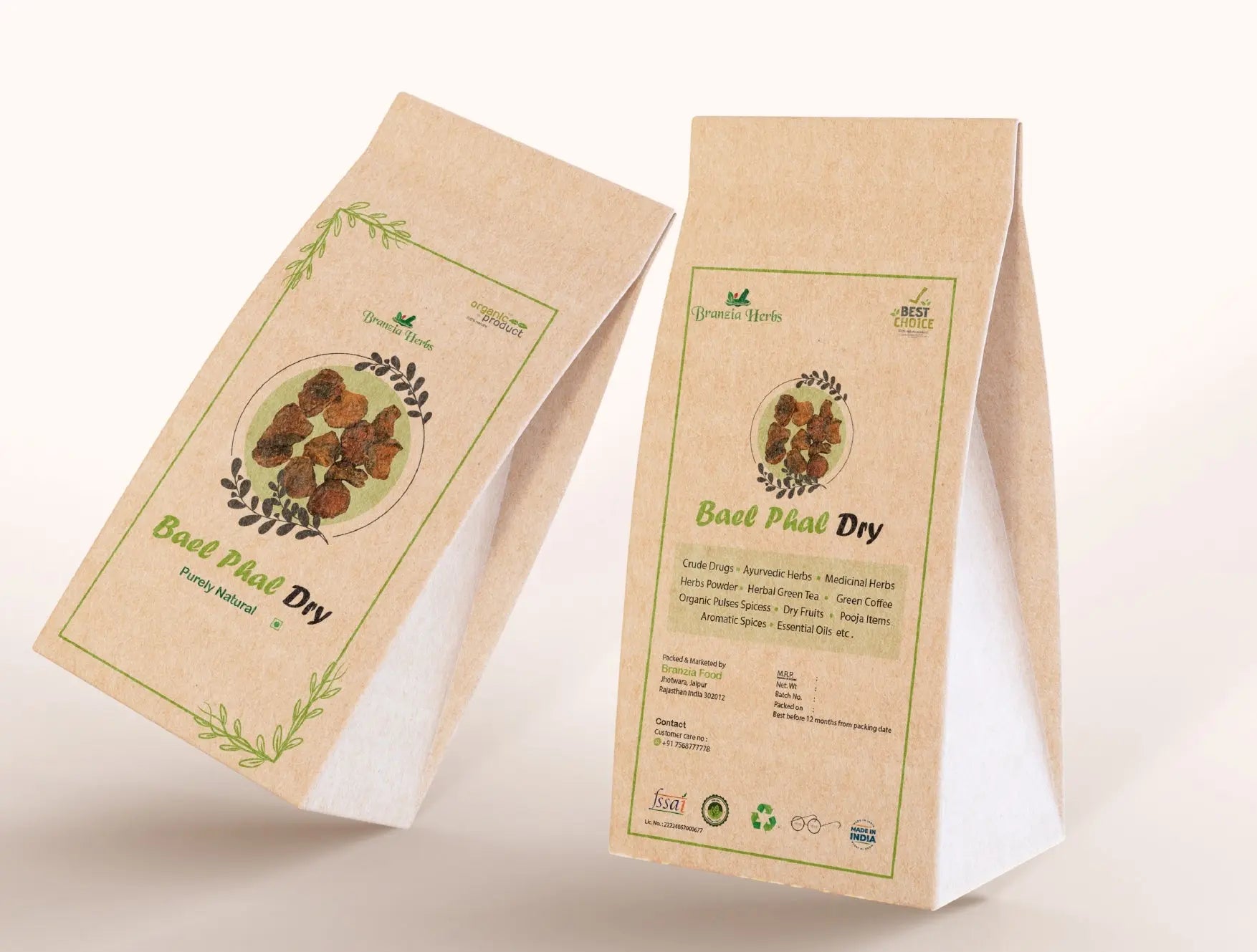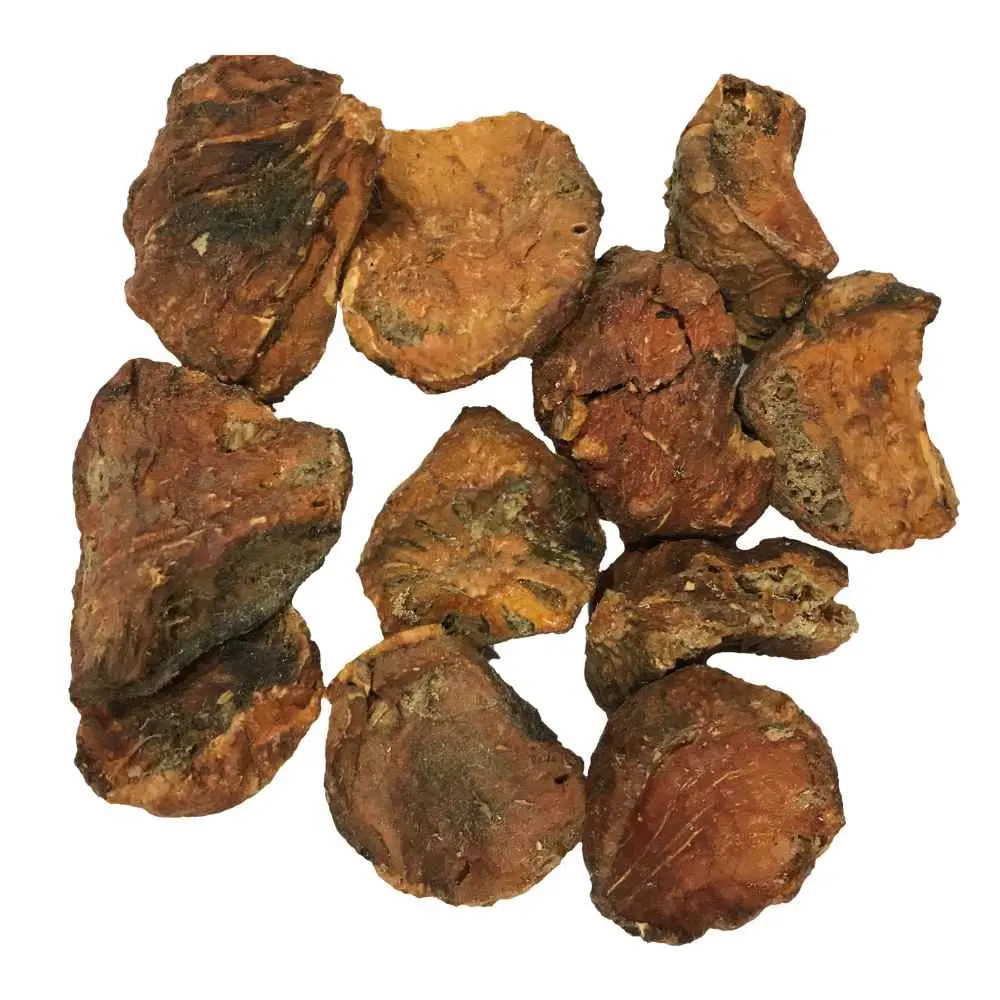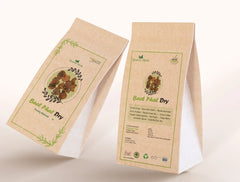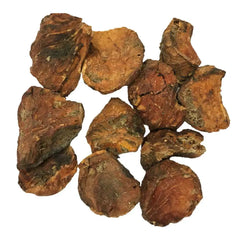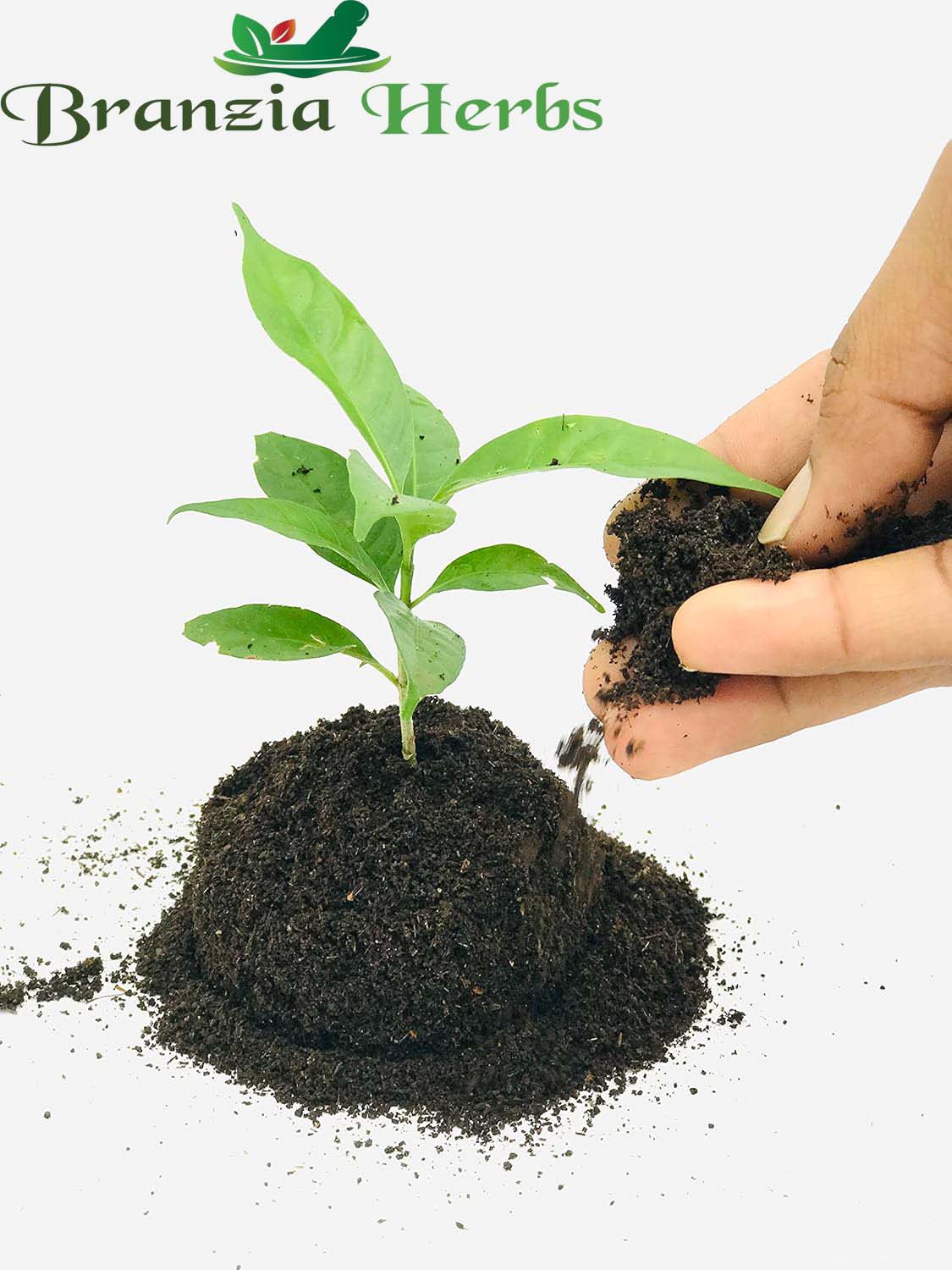-
Bael Fruit Overview:
- Scientific Name: Aegle marmelos.
- Appearance: The bael fruit has a hard, woody outer shell and a sticky, aromatic pulp inside. When dried, the fruit is known as Bael Phal Sukha.
-
Traditional Uses:
- Digestive Health: Bael Phal Sukha is often used to treat various digestive issues such as diarrhea, constipation, and dyspepsia. The dried fruit is believed to have astringent properties that help regulate bowel movements.
- Respiratory Health: It is used in traditional remedies to address respiratory problems like coughs and bronchitis.
- Skin Health: The fruit is used in some traditional treatments for skin conditions, leveraging its potential antimicrobial and anti-inflammatory properties.
-
Preparation and Use:
- Powdered Form: The dried fruit can be ground into a fine powder and used in various herbal formulations or as a dietary supplement.
- Infusions and Decoctions: Bael Phal Sukha can be soaked in water to make infusions or decoctions, which are consumed for their therapeutic effects.
- Culinary Uses: In addition to medicinal uses, dried bael fruit can be used in traditional sweets, beverages, and jams.
-
Properties:
- Astringent: The fruit is known for its astringent properties, which can help tighten tissues and reduce inflammation.
- Nutritional Content: Bael fruit is rich in vitamins (especially vitamin C), minerals, and dietary fiber, contributing to its health benefits.
-
Ayurvedic Significance:
- Health Tonic: In Ayurveda, Bael Phal Sukha is used as a health tonic to balance digestive functions and improve overall vitality.
Note:
While Bael Phal Sukha is highly valued in traditional medicine for its various health benefits, scientific research on its effectiveness and safety is ongoing. It is always a good idea to consult with a healthcare professional before using Bael Phal Sukha, especially if you have existing health conditions or are taking other medications

